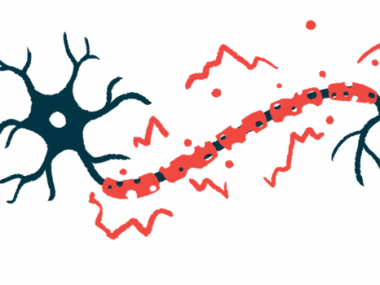Hereditary Cerebellar Ataxia Trial of Riluzole Raises Early Hopes
Written by |

Treatment options for most hereditary ataxias are very scarce. Since 2014, drugs with known safety profiles have been tested in the treatment of hereditary ataxias such as Friedreich’s ataxia and spinocerebellar ataxia. A pilot study in patients with cerebellar ataxias of different causes has shown significant benefits upon riluzole treatment, a drug in use to slow the progression of amyotrophic lateral sclerosis, after 8 weeks. A follow-up of this study titled “Riluzole in patients with hereditary cerebellar ataxia: a randomised, double-blind, placebo-controlled trial,” published in the journal The Lancet Neurology, supports the idea that riluzole could be an effective treatment for cerebellar ataxia patients.
Spinocerebellar ataxias and Friedreich’s ataxia are disabling genetic disorders affecting young people and characterized by progressive postural and gait disturbances. There is no effective treatment for inherited cerebral ataxias. In this study, researchers conducted a one-year double-blind, placebo-controlled trial (ClinicalTrials.gov, number NCT01104649) with riluzole in patients with spinocerebellar ataxia or Friedreich’s ataxia. A total 55 patients with spinocerebellar ataxia or Friedreich’s ataxia from three Italian neurogenetic units were enrolled between May 22, 2010, and Feb 25, 2013, and were randomly assigned to 50 mg orally twice daily riluzole or placebo for 12 months. Using a clinical scale to semi-quantitatively assess impairment by cerebellar ataxia, known as Assessment and Rating of Ataxia (SARA), they identified the proportion of patients with improved score (a drop of at least one point) at 12 months.
The proportion of patients with a decreased SARA score was of 50% in the riluzole group versus 11% in the placebo group. Importantly, no severe adverse effects were recorded.
The data supports the idea that riluzole could be an effective treatment for cerebellar ataxia. Despite the positive results, however, researchers said longer studies are necessary before riluzole might be used as an effective therapy. “Overall, this trial lends support to the idea that riluzole might be efficacious in the treatment of patients with cerebellar ataxia, in addition to its present indication for amyotrophic lateral sclerosis. The drug effect seems to be unaffected by adjustment for the different clinical forms of ataxia,” the authors said in their study.
“Our findings suggest that riluzole could eventually be used in clinical practice, but confirmatory studies on larger and disease-specific populations, for a longer observation period (to reduce the effects of fluctuations in slowly evolving diseases) are needed,” they concluded.





